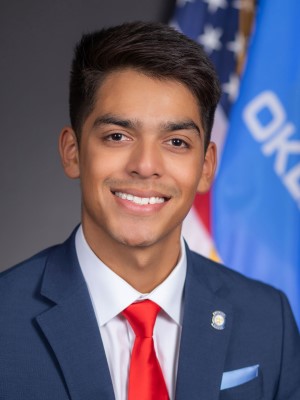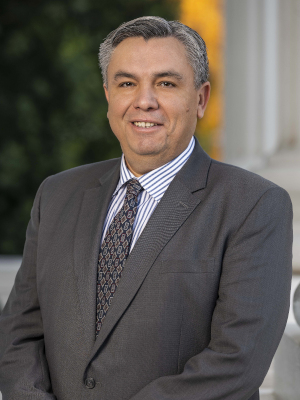2024-17
Eliminating Outdated Telephone Network Requirements for Modern Communications Technologies
Sponsored by
Rep. Arturo Alonso Sandoval (OK) and Asm. Juan Carrillo (CA)
Reported to the Caucus by the NHCSL Broadband and Technology Task Force
Rep. Arturo Alonso Sandoval (OK), Chair
Unanimously ratified by the Caucus on November 23, 2024
WHEREAS, some states require telephone service carriers to maintain the old copper wire landline network, known as Plain Old Telephone Service (POTS), that has been rendered obsolete by modern broadband networks; and,
WHEREAS, “providers worldwide are shifting toward offering fiber optics and ethernet access and retiring older equipment, including the copper wires themselves;”[1] and,
WHEREAS, the transition to modern communication networks and services is necessary due to the declining use of legacy telephone services and the critical need for robust, high-speed broadband connectivity; and,
WHEREAS, while the transition is not without its complexities, especially in remote areas and older buildings and disaster-prone areas,[2] it complements the push for universal broadband deployment that this Caucus has advocated for in Resolutions No. 2022-10, Making the Affordable Connectivity Program (ACP) Permanent; No. 2020-10, Addressing the Broadband Access Crisis by Extending Low-Income Subsidies and Maximizing Electric Infrastructure; and No. 2018-23, Call to Expand Broadband Internet Access into Rural Areas; which taken together provide solutions to many of the potential drawbacks inherent to abandoning the obsolete POTS technology; and,
WHEREAS, even in disaster prone areas, the old POTS is not necessarily the best or most resilient or reliable post-disaster service because its use presupposes that the wired structure is still standing, and that the only issue is lack of electricity. Newer technologies, such as emergency satellite cellphone service, proved much more useful to more victims of the recent flooding caused by Hurricane Helene;[3] and,
WHEREAS, access to broadband-enabled communications networks is also key to creating equity and positive impacts on education, healthcare, emergency services, workforce development, and the economy; and,
WHEREAS, according to the National Center for Health Statistics, only 2% of U.S. adults reported they exclusively use landlines, and an even smaller percentage of Hispanic respondents exclusively use landlines to communicate (1.2%);[4] and,
WHEREAS, maintaining that old POTS infrastructure for such a small portion of the population has inherent costs that providers are certain to be passing to users of newer technologies; and,
WHEREAS, today, 95% of U.S. adults say they use the internet, with Hispanic community members reporting above-average adoption of internet usage at 97%;[5] and,
WHEREAS, according to the National Center for Health Statistics, 83.9% of Hispanic adults are wireless-only, a higher percentage than non-Hispanic Asian (76.0%), non-Hispanic Black (70.8%), non-Hispanic White (73.2%) adults, and all U.S. adults (75.2%);[6] and,
WHEREAS, according to Pew Research Center, 97% of U.S. adults report owning a cell phone, with the Hispanic community showing above-average adoption rates at 98% of adults owning cellphones;[7] and,
WHEREAS, according to Pew Research Center, 90% of U.S. adults indicated owning and relying on a smartphone, with the Hispanic community showing above-average adoption rates of 91% smartphone ownership;1 and,
WHEREAS, the NHCSL recognizes that data shows Hispanic and Latino communities are relying on broadband-based technology at higher percentages than the general population; and,
WHEREAS, the NHCSL recognizes that data shows Hispanic and Latino communities are relying on outdated landlines at lower percentages than the general population; and,
WHEREAS, the NHCSL recognizes the importance of protecting consumers transitioning from legacy telephone service to broadband, and the need to move forward in this transition as a key part of closing the digital divide.
NOW, THEREFORE, BE IT RESOLVED by the National Hispanic Council of State Legislators calls for state governments to support regulatory frameworks that:
- promote the efficient and equitable transition from outdated voice-only networks to broadband networks; and,
- safeguard consumers during that transition, including robust education and support during the transition to ensure they stay connected, particularly for any underserved populations; and,
- maintain and enhance 911 and emergency calling capabilities during and after the transition.
THE NHCSL BROADBAND AND TECHNOLOGY TASK FORCE, IN ITS MEETING OF OCTOBER 9, 2024, UNANIMOUSLY RECOMMENDED THIS RESOLUTION TO THE EXECUTIVE COMMITTEE FOR APPROVAL. THE EXECUTIVE COMMITTEE UNANIMOUSLY APPROVED THIS RESOLUTION AT ITS MEETING OF OCTOBER 18, 2024.
THE NATIONAL HISPANIC CAUCUS OF STATE LEGISLATORS UNANIMOUSLY RATIFIED THIS RESOLUTION AT ITS ANNUAL MEETING OF NOVEMBER 23, 2024 IN DENVER, COLORADO.
[1] Samantha Murphy Kelly, Still love your landline? Phone service providers are getting closer to phasing it out. (CNN Feb 5 2024).
[2] Ibid.
[3] Ryan Christoffel, Messages via satellite provides lifeline to iPhone owners in Hurricane Helene fallout (9-to-5 Mac, Sept 30 2024). Andrew Romero, What Satellite SOS can do on Pixel 9 and how to test it ahead of Hurricane Milton (9-to-5 Google, Oct 8 2024). Sarasota Magazine, Your iPhone Has Satellite Capabilities That Could Help You During a Hurricane. Google Pixel 9 series phones also have emergency satellite services enabled. (Oct 7, 2024). José Adorno, Apple’s iPhone satellite messaging is ‘literally saving lives’ amid North Carolina flooding (BGR Sept. 30 2024).
[4] National Center for Health Statistics, Wireless Substitution: Early Release of Estimates from the National Health Interview Survey, July-December 2023.
[5] Pew Research Center, Internet, Broadband Fact Sheet, January 31, 2024.
[6] National Center for Health Statistics, Wireless Substitution: Early Release of Estimates from the National Health Interview Survey, July-December 2023.
[7] Pew Research Center, Mobile Fact Sheet, January 31, 2024.



